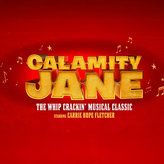Rita, Sue and Bob Too - Review
- Elemental Theatre Company
- Sep 25, 2024
- 4 min read
Updated: Mar 19
★★☆☆☆
Diva Production’s take on Rita, Sue and Bob Too attempts to provoke and challenge the audience, but is unfortunately left flogging a dead horse. While there are moments of poignancy, and the production makes an effort to stay true to Andrea Dunbar’s dramatic vision, it struggles to meet audience expectations — who seemed to be there to see ‘Dirty Brenda’s Sex Show.’ The result feels like a watered-down version of the film adaptation, which, frankly, can remain in the 1980s.
Rita, Sue and Bob Too is a dark comedy drama that follows the lives of Rita (Emma Hooker) and Sue (Polly Lovegrove), two working-class teenage girls from the slums of a northern council estate during Thatchers Britain. To earn some extra money they babysit for a middle class married couple, Bob (Dale Vaughan) and Michelle (Louisa Maude). However, once the babysitting is done Bob takes Rita and Sue to the countryside where they take turns in having a ‘jump’ with him in his car. The affair continues behind Michelle’s back, but it is only a matter of time before she, and worse still Sue’s parents, find out and when they do, all hell breaks loose.
Many reviewers have raised concerns about whether Rita, Sue and Bob Too should still be staged, given its dark and controversial storyline. Personally, I believe it’s important not to silence voices or stories, especially when a play like this draws from the semi-autobiographical experiences of its writer, Andrea Dunbar. That said, producing a play with a cult following, as this one has, presents its own challenges. The cult status of the film adaptation is what attracts much of the audience, but this production doesn’t do enough to differentiate itself from the film or update its approach for modern sensibilities, leaving it feeling massively out of touch.
Before the show opens, there is a soundtrack of 80’s hits and a slideshow of images from the era — including an ill-advised shot of the ‘Jim’ll Fix It’ medallion — setting the scene. The play begins with Bob taking Rita and Sue up the moors (not a euphemism), where he pulls over for a casual conversation about condoms. The dialogue is strikingly similar to the film, prompting the audience to laugh at every sexual reference — like a gaggle of teenagers — which was strange as the actors’ interpretations were quite different. Vaughan’s Bob exuded a powerful over-confidence and control, while Hooker’s Rita was played with naivety and reluctance, until encouraged by her more playful best friend, Sue. This is where the audience-actor dynamic began to reveal itself. The crowd, expecting an outright comedy, seemed to demand it, pushing some of the actors to overplay the humour, lending the production a pantomime-like tone. Lovegrove’s Sue, for example, frequently gave knowing glances to the audience, as if letting them in on the joke — an odd contrast to the more restrained performances by Hooker and Vaughan.
Much of the production appeared to be played for laughs but exaggerating what, through a modern lens, amounts to child abuse felt uncomfortable. The performance could have benefited from the guidance of an intimacy coordinator to balance these sensitive dynamics. Part of me wonders if this comedic shift was a reaction to the audience’s laughter, as if the actors decided, after rehearsals, to lean into it. However, in the final scene, Sue’s Dad (Andrew Ashley) stumbles on stage to cue We’re Having A Gang Bang by Black Lace — the memorable song from the film — suggesting these choices were planned all along. The creative team knew exactly what they were doing. Additional scenes, not found in the original script, were also included, seemingly to bring the play closer to the film, and these choices felt woefully misguided.
The staging of Rita, Sue and Bob Too was highly effective, with a clever use of an amalgamation of sofas to depict different living rooms, or the interior of Bob’s car, enhanced by well-integrated back projections. The sound design was equally impressive, with music choices that supported the storytelling. A particularly striking moment was the use of the Eurythmics’ Sweet Dreams and the lyrics “Some of them want to abuse you, some of them want to be abused,” which poignantly underscored the onstage dynamics. It’s unfortunate that the focus of this review has to be the play’s controversial subject matter because the technical elements — staging, lighting, and sound design — and much of the acting were of a good standard. I’d happily attend future productions by Diva Productions, as their overall execution was in line with the ticket price.
In terms of performance, Emma Hooker (Rita) was on top form, delivering great comic timing and the subtlety required for her role. Louisa Maude’s portrayal of Michelle was equally superb, her emotional depth feeling raw and genuine. One of the most powerful moments was a silent exchange in Act 2, after Bob knocks a plate out of Michelle’s hands and she quietly cleans it up, which powerfully illustrated the power dynamics in their relationship. However, Andrew Ashley’s portrayal of Sue’s Dad was a weak point. The character, meant to be a scruffy, drunken council estate type, lacked consistency un accent, posture and intimidation. His performance felt more awkward than funny and didn’t complement Alison Gibson, who played Sue’s Mum with a strong voice and presence but was let down by the lack of chemistry in this comic duo. Dale Vaughan's depiction of Bob is spot-on for the character, he convincingly portrayed the controlling nature of his character with the gentle subtleties that still make him likeable - he didn't deserve the pantomime 'boo' he received in the bows, his performance was actually well deserving of a strong round of applause.
All in all, unless you’re a nostalgic fan of the film, especially if you’re in your late 50’s, this is a production I wouldn’t rush to buy tickets for. While there are strong elements and some decent performances, it falls short of delivering a strong interpretation of Dunbar’s work.













































Comments